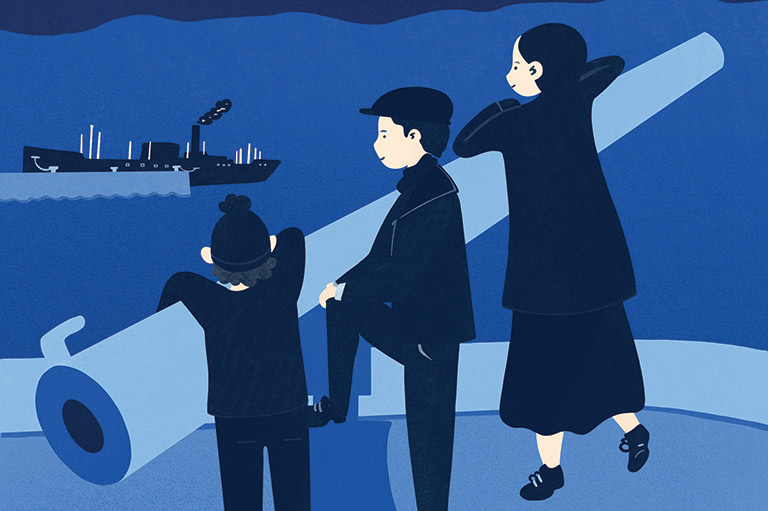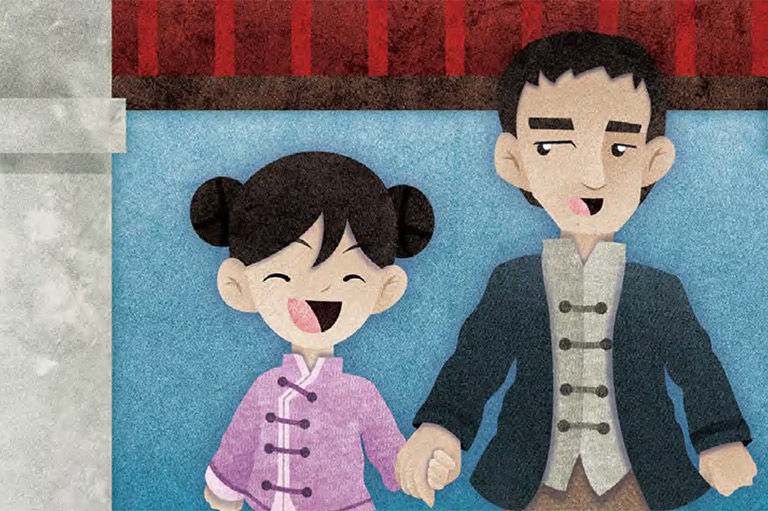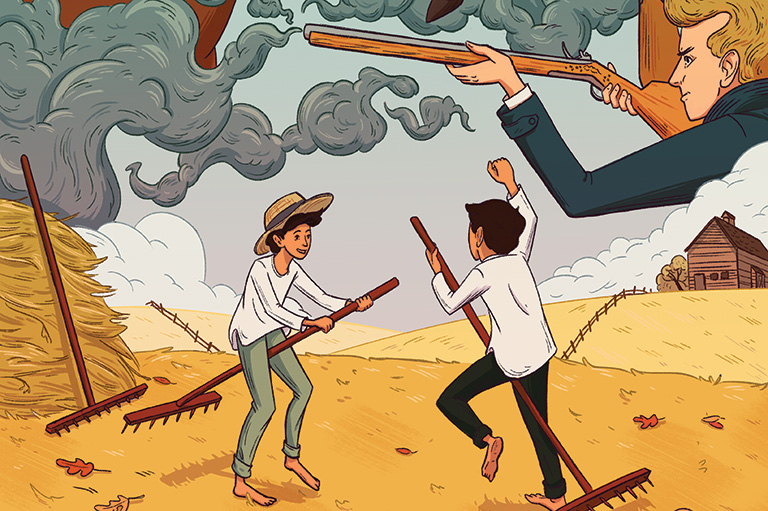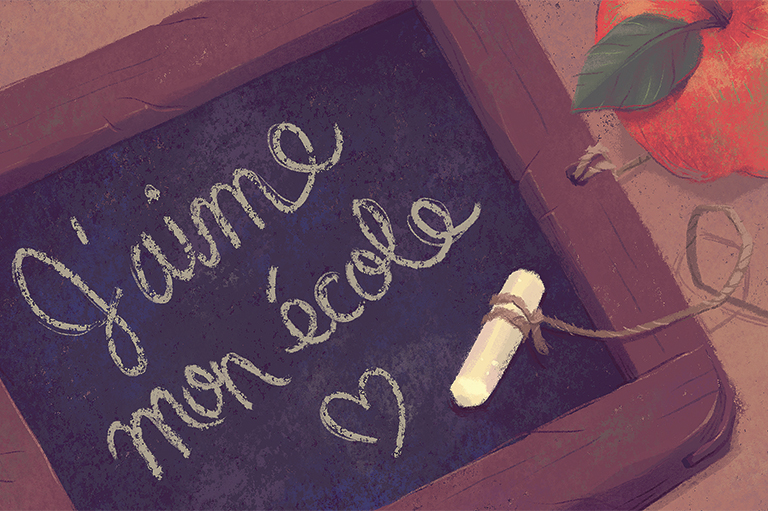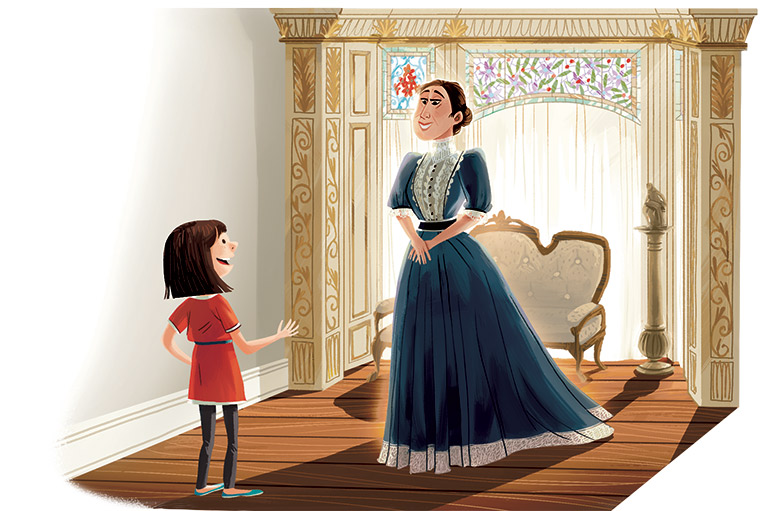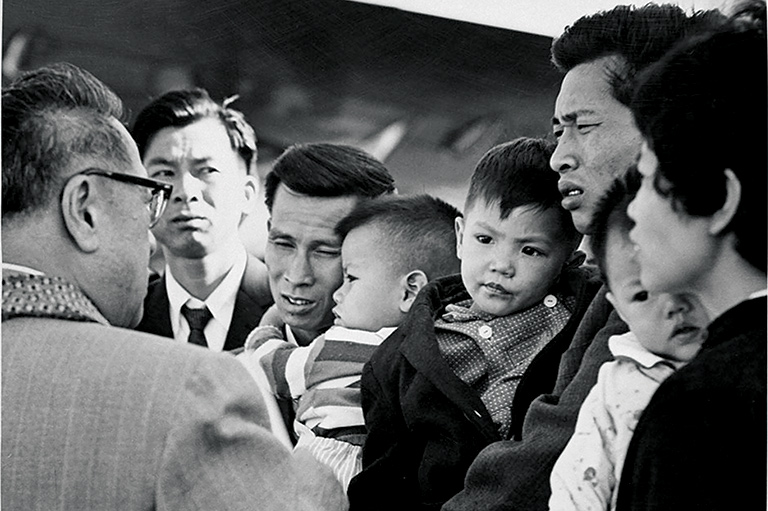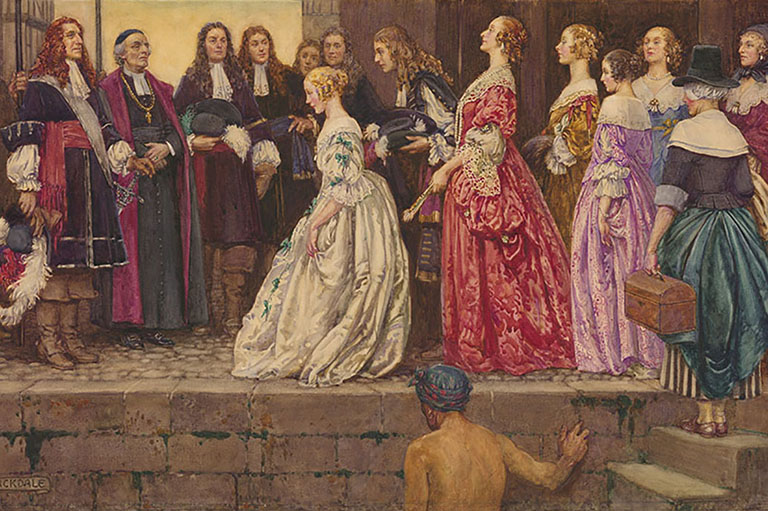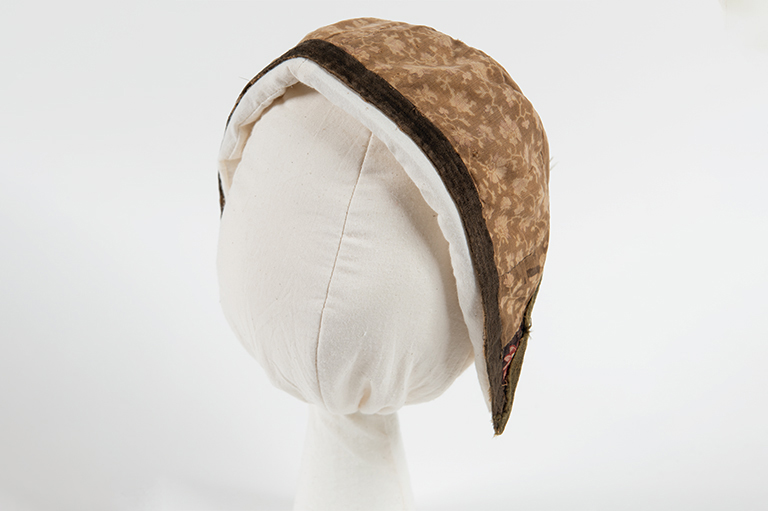Place of Harmony
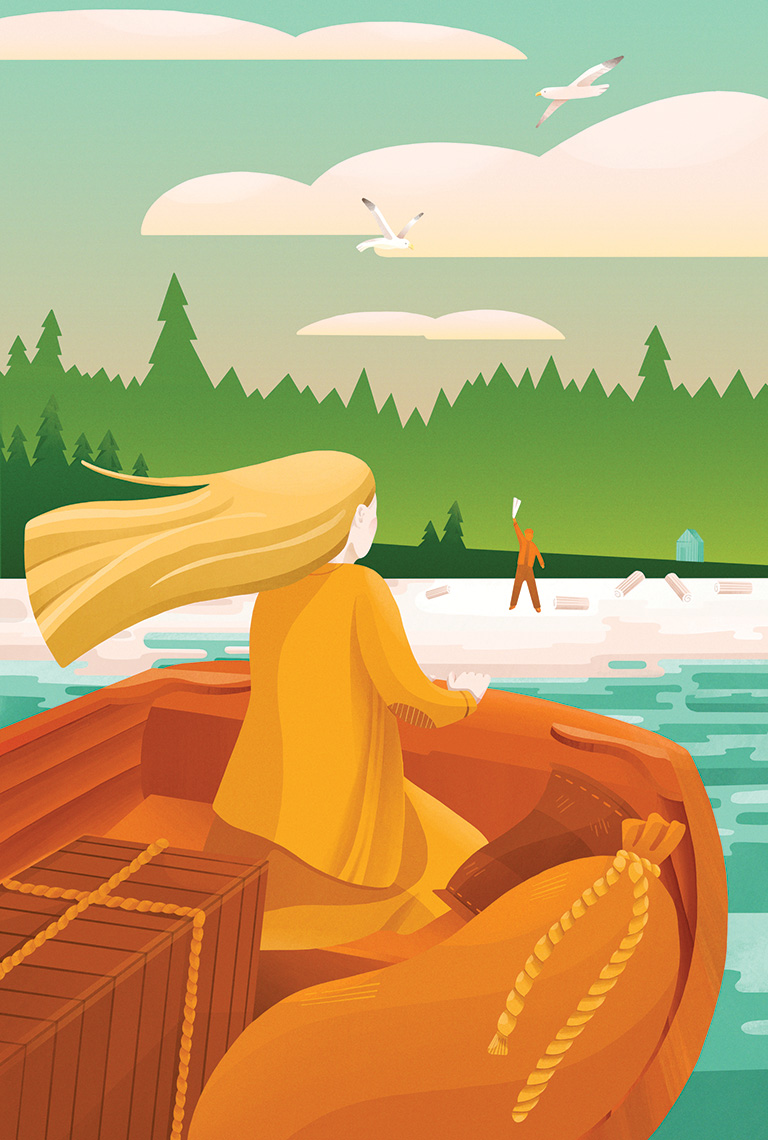
1903, Sointula, British Columbia
“Nuku nuku nurmilintu” … a cold breeze stings the lips of the eight passengers on their little wooden boat in the ocean. The cold currents pull the oars in every direction. The wind works against them, tugging at their hair and their rough wool clothes.
Auna’s father holds her in his arms, and she cradles a doll in her slim hands. “Vasy, vasy, vastarakki” … she sings an old Finnish lullaby under her breath, rocking the doll back and forth like the waves rocking the boat. She never liked the island. She felt disconnected from the rest of the world there, but she did have some good times, and now she doesn't want to leave. She thinks of all the good memories she had with her mother, making pulla and walking on the beach. As the boat pulls ahead, she sits up on her knees to get a last look at Malcolm Island, and her brother.
She is just big enough to tip the boat slightly and her cousin pulls her down. “You’re too heavy. You’ll tip us over!” Lempi says.
“But I only wanted to see Alexi!”
“You can see him sitting down.”
Auna does as she’s told but cranes her neck to get a glimpse of the island. At high tide, the feet of the blueish-green trees almost touch the salty water. Tiny waves eat at the beach. A distant figure waves a white tea towel. A last goodbye.
“I can see him!” exclaims Auna.
She thinks about her brother, all alone in their house. But he would have a wife soon, and a new family. He would forget about her. She hugs her doll and thinks about what she is leaving behind.
The little colony her people had built had been her home for many years. Her parents had come to the island hoping for a safe, peaceful place to raise their children. She loved eating fresh fish, jumping in the ocean after a sauna, eating pulla and waking up to the sound of waves on the beach.
She never liked sleeping in a building with almost the whole village. If one baby started crying in the middle of the night, it would wake up half the dormitory.
With 7 uniquely curated newsletters to choose from, we have something for everyone.
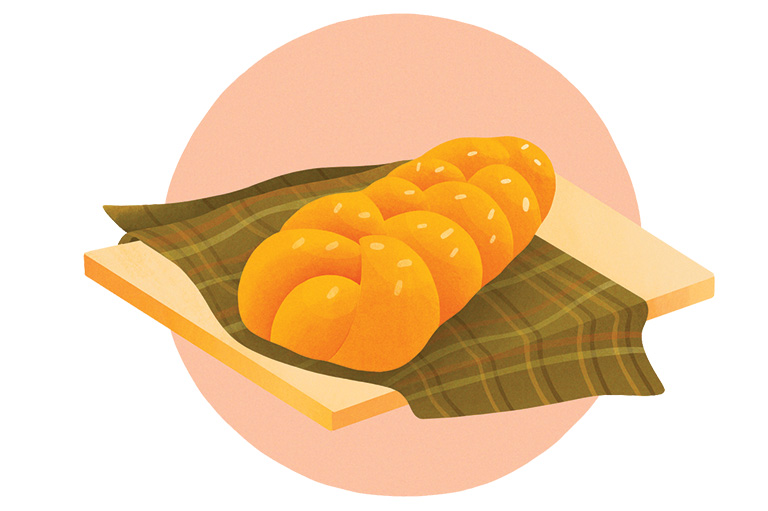
One night a fire broke out, and flames filled the sky with smoke as thick as the steam from a sauna. Many people didn’t make it out. It hit the family hard. The fire took their mother from them, but it took pieces of their father too. His smile was never the same.
Soon after, they moved to a new little house. Nestled in trees, it had three bedrooms, a kitchen and a shed outside that served as a sauna. Every Saturday the family would go out to enjoy the little steam bath, heated by a wooden stove topped with rocks. Someone would throw water onto the rocks, creating clouds of hot steam. Auna can just see the little blue-roofed sauna as the boat creeps forward.
She sighs. Saskatchewan sounded like a nice place, but there was no ocean there. Sure, she’d have cousins to play with, and aunts and uncles to look after her, but Papa wasn’t used to farming. He and the other men in Sointula were builders: strong and sturdy, used to working with wood, not dirt and seeds.
Alexi had gone to work on some of the construction projects the colony had started to try and earn some money. But he always came home with nothing. At least the town in Saskatchewan wasn’t bankrupt. Auna slips her fingers under her doll’s clothes and pulls out a piece of paper. Her mother’s handwriting fills the page. At least she has this to remember her mother by — the recipe for pulla.
“Do you miss her?” asks Lempi.
“Every day,” she whispers.
Her father takes the paper from her hands and reads it over, a slight smile on his lips and a tear in his eye. It could have been just the salty sea air. Auna knew they weren’t ready to let go yet, and they weren’t ready to leave. But Sointula no longer felt like home, so they had to be ready for whatever was ahead of them.
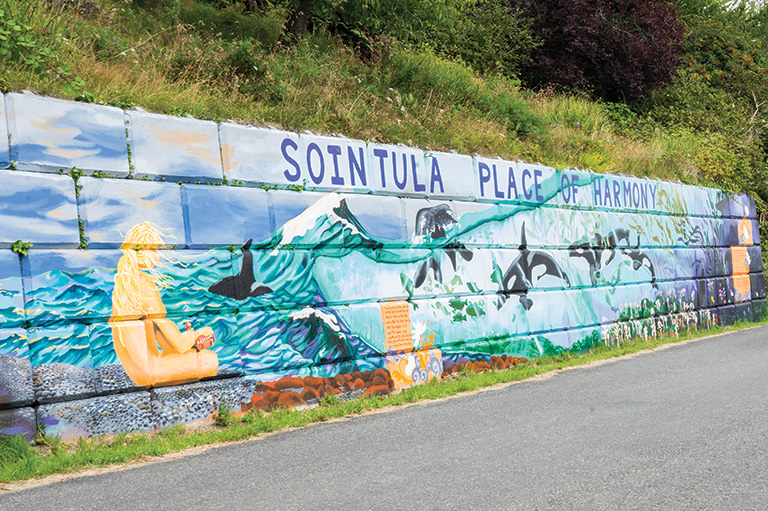
By the late 1890s, a group of Finnish immigrants working in coal mines on Vancouver Island were looking for a better life. They had worked hard but now the mine owner was forcing them to leave behind the homes they’d built and move somewhere else if they wanted to keep working for him.
They dreamed of a place where they could live in freedom and equality without bosses, alcohol or churches. So in 1901 they collected money to bring Matti Kurikka, a well-known Finnish writer and thinker, to Canada. They set up a colony on Malcolm Island, off the northeast coast of Vancouver Island. They called it Sointula, which means “place of harmony” in Finnish.
The idea was to work together and care for each other. They started a company that would run fishing boats, harvest logs, farm and operate shops. They even published a newspaper in Finnish, Aika which means “time.”
But although they had a wonderful vision of a peaceful, happy colony, the reality was very different. People arrived expecting somewhere to live before houses were even built, and the homes for the first families weren’t good. The company didn’t charge enough for its work, so the colony ran out of money. A terrible fire in 1903 killed three adults and eight kids, and burned many supplies.
Kurikka, who was a dreamer but not a great leader or businessperson, left late in 1904. Many of the colonists went with him. Another leader named A.B. Makela stayed on. By 1905, the Sointula colony had fallen apart, but many of its ideas have lived on.
There is still a town named Sointula on Malcolm Island. You can see its Finnish past in the people’s names, and in the pulla (a Finnish sweet bread) in the bakery and saunas (steam rooms) around the island.
We hope you’ll help us continue to share fascinating stories about Canada’s past by making a donation to Canada’s History Society today.
We highlight our nation’s diverse past by telling stories that illuminate the people, places, and events that unite us as Canadians, and by making those stories accessible to everyone through our free online content.
We are a registered charity that depends on contributions from readers like you to share inspiring and informative stories with students and citizens of all ages — award-winning stories written by Canada’s top historians, authors, journalists, and history enthusiasts.
Any amount helps, or better yet, start a monthly donation today. Your support makes all the difference. Thank you!
Themes associated with this article
Advertisement
You might also like...
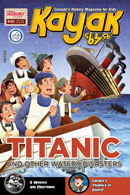
Canada’s History Archive features both English and French versions of Kayak: Canada’s History Magazine for Kids.
Kayak: Canada’s History Magazine for Kids — 3 digital issues per year for as low as $13.99. Tariff-exempt!

